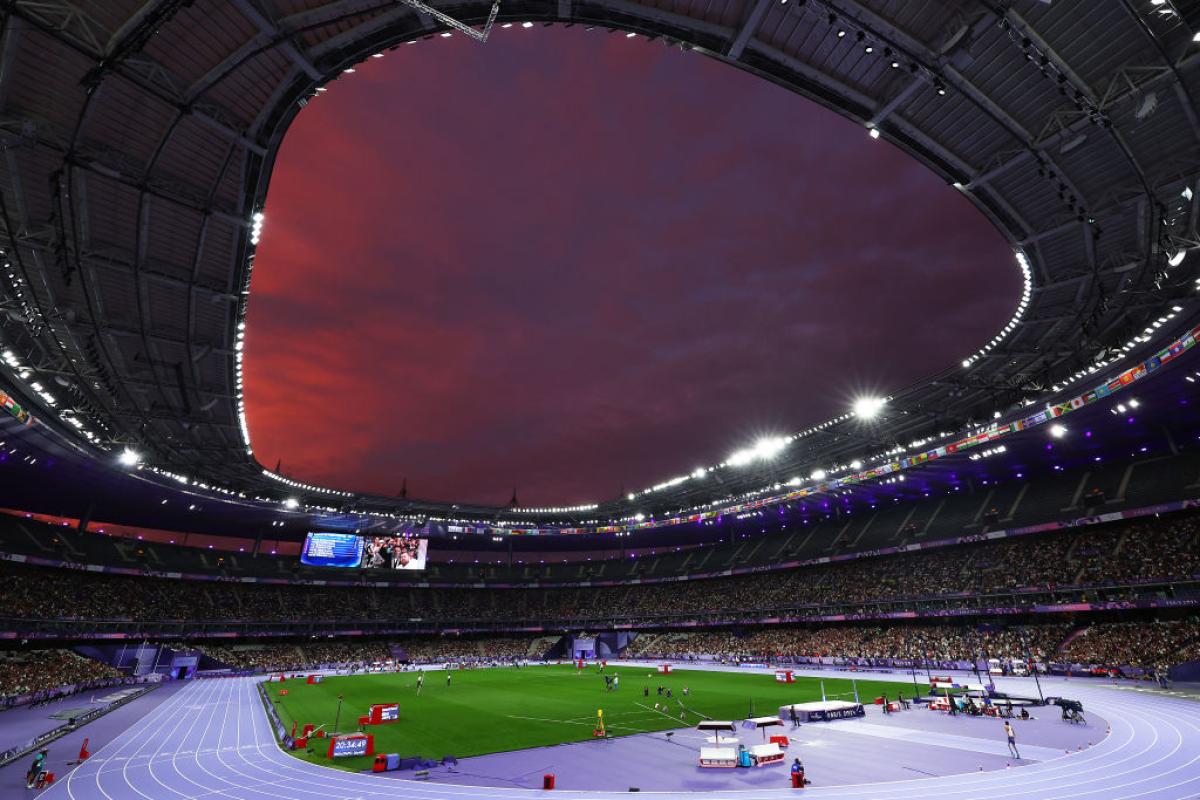Spanish athlete accepts unintentional commission of an anti-doping rule violation
Para athletics athlete tested positive for a Prohibited Substance at the Paris 2024 Paralympic Games 30 Oct 2025
The International Paralympic Committee (IPC) has determined that Spanish Para athletics athlete Sydney Fokou Takam committed an anti-doping rule violation (ADRV) at the Paris 2024 Paralympic Games, in breach of the IPC Anti-Doping Code.
The Spanish athlete tested positive for brinzolamide, following a doping control test conducted on 1 September 2025, during the Para athletics Women's Long Jump T12 competition at the Paris 2024 Paralympic Games.
Brinzolamide is currently included on the World Anti-Doping Agency’s (WADA’s) Prohibited List, under Class S5 - Diuretics and Masking Agents. The presence of brinzolamide in an athlete’s doping control sample would be permitted if it was a result of topical ophthalmic use (i.e. the use of eye drops). Athletes with a vision impairment will often return a positive test due to the use of eye drops that contain a carbonic anhydrase inhibitor such as brinzolamide, which are commonly prescribed for medical reasons.
The athlete was provisionally suspended by the IPC on 7 November 2024. However, this provisional suspension was lifted by the IPC on 8 April 2025, after the athlete’s explanation demonstrated that she bore No Fault or Negligence for the violation.
Following an investigation, the IPC concluded that the positive test was likely due to inadvertent contamination. While the athlete herself does not use eye drops containing brinzolamide, the athlete was able to substantiate with reliable evidence that the likely source of the Prohibited Substance was inadvertent contamination with another person who does use these eye drops. The athlete accepted her commission of the ADRV and the consequences proposed by the IPC.
Due to the No Fault or Negligence finding, no period of ineligibility has been imposed. However, as the sample was collected In-Competition, the IPC is required to automatically disqualify the athlete’s results from the competition in which the sample was collected (the Women’s Long Jump T12 event at the Paris Paralympic Games on 1 September 2025), including forfeiture of any medals, points and prizes.
Athletes are held is strictly liable for any Prohibited Substances found in their sample. ADRV proceedings are initiated when a Prohibited Substance (or its metabolites or markers) is detected in a urine and/or blood sample provided by an athlete for doping control – regardless of whether or not the athlete intended to dope, or was negligent or otherwise at fault.
As previously communicated, the IPC, in partnership with the Ghent University, has initiated a two-year study, supported by a World Anti-Doping Agency (WADA) research grant, to investigate the use of eye drop medication typically used by athletes with a vision impairment to treat glaucoma and ocular hypertension.
This study, led by the Anti-Doping Laboratory (DoCoLab) at the Ghent University, aims to establish concentration levels that would allow differentiation between the legitimate medical use of these substances and their potential misuse in doping as a masking agent. This has the potential to change the way laboratories are required to report these findings for anti-doping purposes, whereby athletes who use eye drops for legitimate health reasons would return a negative test result, based on the level of concentration in their sample. This study will also investigate the potential for athletes to test positive through contamination (as in this case), for example through skin-to-skin contact.
Until then, the IPC appreciates that athletes such as the one in this case face a very difficult situation. They are at high risk of contamination with these Prohibited Substances (carbonic anhydrase inhibitors) which can potentially remain detectable in their system for a very long period. This causes unnecessary stress for athletes and places a significant administrative burden on results management authorities, especially during major sporting events. From the Paris 2024 Paralympic Games alone, the IPC closed more than 20 cases where positive tests for carbonic anhydrase inhibitors were explained by the athletes’ legitimate use of eye drops.
As a signatory of the World Anti-Doping Code (the WADC), the IPC remains committed to a doping-free sporting environment at all levels. The IPC has established the IPC Anti-Doping Code in compliance with the general principles of the WADC, including the WADC International Standards, expecting that, in the spirit of sport, it will lead the fight against doping in sport for athletes with an impairment.




